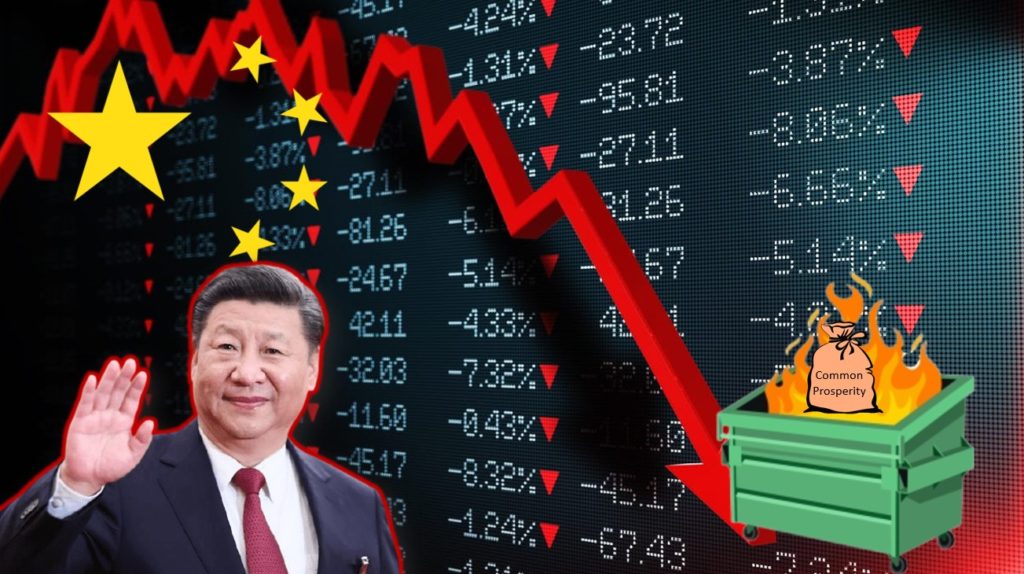China’s Economy in Flux: What’s Driving the Slowdown and What’s Next?

China’s economy is in a state of flux. After growing at a record pace of 8.1% in 2021, the economy slowed to 4.8% in 2022, the lowest growth rate in nearly a decade. The slowdown is due to a number of factors, including the ongoing COVID-19 pandemic, the war in Ukraine, and rising inflation.
In the first quarter of 2023, China’s economy grew by 4.8% year-on-year, slightly below market expectations of 4.9%. However, the second quarter growth figures were much weaker, coming in at just 0.4% year-on-year. This was the weakest quarterly growth rate since the first quarter of 2020, when the COVID-19 pandemic first began to take hold.
There are a number of reasons for the slowdown in China’s economy. The ongoing COVID-19 pandemic has had a significant impact on the economy, as strict lockdowns have been implemented in several major cities, including Shanghai. The war in Ukraine has also had a negative impact on the Chinese economy, as it has disrupted global supply chains and led to higher commodity prices. Finally, rising inflation is also putting a strain on consumers and businesses.
Despite the slowdown, there are some positive signs for the Chinese economy. The government has taken a number of measures to stimulate growth, including cutting interest rates and increasing infrastructure spending. In addition, the property market is starting to show signs of recovery.
Overall, the outlook for China’s economy is uncertain. The slowdown is likely to continue in the near term, but the government’s stimulus measures could help to boost growth in the second half of the year.
Here are some of the key drivers of China’s economy:
- Exports: China is the world’s largest exporter, and exports have been a major driver of economic growth for many years. However, the growth of exports has slowed in recent years due to a number of factors, including the ongoing trade war with the United States, the rising cost of labor, and the strength of the Chinese currency.
- Investment: Investment has also been a key driver of China’s economic growth. The government has invested heavily in infrastructure, manufacturing, and other sectors, and this investment has helped to create jobs and boost economic activity. However, investment growth has slowed in recent years, as the government has tried to reduce the country’s debt levels.
- Consumption: Consumption is becoming an increasingly important driver of China’s economic growth. As the Chinese population becomes wealthier, people are spending more on goods and services. However, consumption growth has been held back by the high cost of housing, the weak rural economy, and the ongoing COVID-19 pandemic.
Here are some of the challenges facing China’s economy:
- The aging population: China is facing an aging population, which is putting a strain on the country’s social welfare system and reducing the size of the workforce. The government is trying to address this challenge by raising the retirement age and increasing spending on social welfare programs.
- The rising cost of labor: The cost of labor is rising in China, which is making it more difficult for businesses to compete with rivals in other countries. The government is trying to address this challenge by increasing the minimum wage and providing tax breaks to businesses that invest in automation.
- The environmental challenges: China is facing a number of environmental challenges, including air pollution, water pollution, and soil pollution. These challenges are harming the health of the population and the economy. The government is trying to address these challenges by investing in environmental protection programs.
Overall, China’s economy is facing a number of challenges. However, the government is taking steps to address these challenges, and there are some positive signs for the economy.
Xi Jinping has had a significant impact on China’s economy. He has promoted economic development and national rejuvenation through initiatives such as the Belt and Road Initiative. These initiatives have helped to boost China’s economy and its influence in the world.
However, Xi Jinping’s policies have also led to some challenges for the Chinese economy. His crackdown on corruption has led to uncertainty in the business community, and his focus on state-owned enterprises has crowded out private businesses.
Overall, Xi Jinping’s impact on China’s economy is mixed. He has taken some steps to promote economic growth, but his policies have also created some challenges for the economy. It remains to be seen how Xi Jinping’s policies will ultimately shape China’s economy.